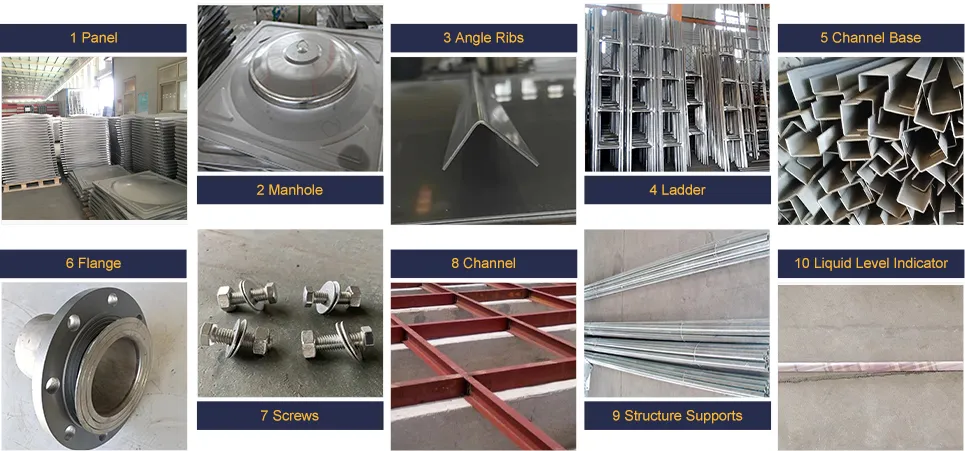loading...
- No. 9, Xingyuan South Street, Dongwaihuan Road, Zaoqiang County, Hengshui, Hebei, China
- admin@zjcomposites.com
- +86 15097380338
- Welcome to visit our website!
sectional water tanks
Understanding Sectional Water Tanks A Comprehensive Guide
Sectional water tanks have become an integral solution for water storage in both residential and commercial applications. These tanks are designed to be versatile, durable, and efficient in meeting the diverse needs of different environments. This article will delve into the key features, advantages, and considerations associated with sectional water tanks.
What are Sectional Water Tanks?
Sectional water tanks are prefabricated tanks comprised of several sections or panels, usually made from materials such as steel, fiberglass, or plastic. They are designed to be assembled on-site, which allows for easy transportation and flexibility in installation. These tanks can be configured in various sizes and shapes, making them suitable for a wide range of locations and purposes.
Key Features of Sectional Water Tanks
1. Modular Design One of the primary benefits of sectional water tanks is their modular design. This feature allows for customization in terms of size and capacity. Depending on the requirements, tanks can be expanded or reduced by adding or removing sections.
2. Material Options Sectional tanks are available in diverse materials. Steel tanks offer durability and strength, while fiberglass tanks are lightweight and resistant to corrosion. Plastic tanks provide a cost-effective solution with good chemical resistance.
3. Easy Installation The lightweight nature of the sections means that sectional tanks are easier to transport and install, often requiring fewer resources and less labor. This convenience can lead to cost savings and quicker project turnaround times.
sectional water tanks

Advantages of Sectional Water Tanks
1. Space Efficiency These tanks can be installed in tight spaces, making them ideal for urban environments or areas with limited land availability. Their scalability further adds to their versatility.
2. Durability When properly maintained, sectional water tanks are designed to withstand harsh weather conditions and can offer a long service life. This resilience makes them a smart investment for long-term water storage needs.
3. Cost-Effectiveness Due to their customizable nature and the possibility of assembly without heavy machinery, sectional tanks can prove to be more economical than traditional fixed tanks, especially in smaller applications.
Considerations When Choosing a Sectional Water Tank
Before making a choice, it is essential to consider factors such as local regulations, water quality requirements, and site-specific conditions. Proper maintenance and inspection are also crucial to ensure the longevity and functionality of the tank.
In conclusion, sectional water tanks present a flexible and efficient solution for various water storage needs. With their numerous advantages and adaptability, they serve as a reliable option for modern water management systems, whether in urban centers or rural settings.
-
Transform Your Spaces with FRP Grating SolutionsNewsNov.04,2024
-
The Versatility and Strength of FRP RodsNewsNov.04,2024
-
The Excellence of Fiberglass Water TanksNewsNov.04,2024
-
The Benefits of FRP Grating for Your ProjectsNewsNov.04,2024
-
Elevate Your Efficiency with FRP Pressure VesselsNewsNov.04,2024
-
Welcome to the World of FRP Pressure VesselsNewsOct.12,2024
-
Unveiling the Future of Filtration: Why FRP Filter Vessels are a Game ChangerNewsOct.12,2024
